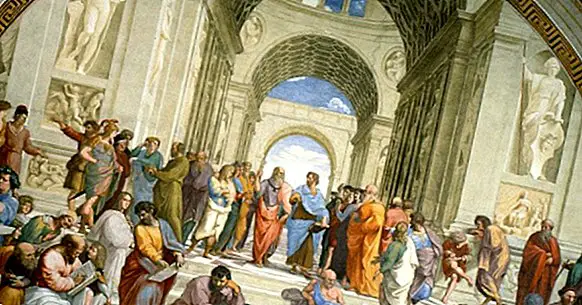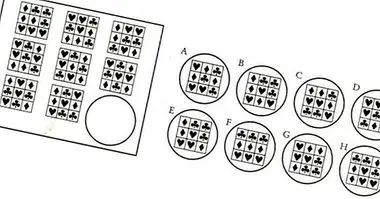Why do we need philosophy to live
Lately we tend to believe that healthy minds are the most efficient. Those who think faster, those who self-regulate better, those who know how to detect problems and plan strategies to solve them, those who are able to adapt well to complicated situations without succumbing to the moods related to unhappiness.
They are functions that seem rather useful traits to find work or to adapt well to the productive gear and that, although they are positive, offer a somewhat limited conception of what the human brain. One could almost say that they are capacities that could be measured on a scale of 0 to 10 according to our ability in each of these areas, and that give us a very flat portrait of what we understand as "cognitive abilities".
But there is a discipline that reminds us that the ability to break the schemes and mental frames is always there. And no, it's not about advertising or marketing: it's philosophy.
It may interest you: "The beneficial effects of philosophy on children"Philosophy to transgress
Both philosophy and art have been gaining powerful enemies because of the relative difficulty with which they can be "domesticated", tied in bundles and sold in bundles. It's natural, considering that both are based on the possibility of subverting laws and going beyond pre-established thinking schemes .
However, while art can be appreciated for its more or less striking aesthetic aspect, philosophy does not seem to have that capacity to materialize with such a spectacular result. It seems that it does not have the favorable treatment of society of the show and viral videos on the Internet, and it is even more frequent to be moved in institutes and universities.
Of course, that does not mean that philosophy does not matter. Here is seven reasons why philosophy enriches our way of thinking not only in our moments of reflection, but also in our day to day.
Philosophy serves ...
1. To ask ourselves what is important in life
Many people usually relate the word "philosophy" with old books and abstract theorizations that can only interest a few. It has also been said many times that philosophy, like art, is useless. This criticism is, at the same time, an evidence of why we need them both: to question the criteria of what is useful and what is not. A concept of utility that, if it is not in doubt, will be the one that you sustain those people who only live to produce in series.
2. To know what is known
One of the first philosophers, Socrates, made famous the phrase "I only know that I know nothing". It is not just a paradox: one of the immediate effects of philosophy is that it facilitates the task of recognizing where is the limit between what we know and what we ignore, and at the same time allows to combine areas of knowledge with others of ignorance . In this way we can recognize in advance aspects of reality that we do not understand and do not "overreach" in our assumptions.
3. To have a consistent thought
Philosophy helps to get to the root of problems and concepts. Thus, allows to detect the strengths and weaknesses of a philosophical positioning , be coherent in our lines of thought and avoid theoretical contradictions. This has very palpable implications both in our way of communicating and in our way of acting, whether we are individuals or organizations.
4. To be "indies" of thought
Much of our mentality and our typical way of imagining things comes to us "as a series" through the cultural context in which we are immersed. It is comfortable to be carried away by these predominant currents of ideology in our country, but it is also something that makes us more manipulable. Through philosophy (and, possibly, combining it with the habit of traveling) we can see to what extent many of those things that we considered a dogma are relative , and we gain autonomy to build our own vision about the world. An example of this is Schopenhauer, who in the middle of 19th century Europe developed a philosophical system influenced by Buddhism.
5. To better understand the history
You can not understand history without having also understood the philosophical foundations prevailing in each moment. Each era is strongly marked by the superstructure, that is, by the ideas and values prevailing at that time . From the point of view of those of us who live in the 21st century, many stages and historical events may be inconceivable to us.One of the causes of this strangeness towards the past may be the ignorance of the cultural and thought patterns of a certain historical context.
6. To better understand the rest of societies
In the same way, if we do not know the philosophical assumptions on which other cultures are based, we will be judging them, erroneously, from our own. The result It would be like imagining an unflattering caricature of what we intend to come to understand .
7. To have a clearer portrait of how we think
The fact of reflecting on our way of understanding life makes us have a clearer self-image to , we know each other better and we can easily recognize which people are most compatible with our way of thinking.



















